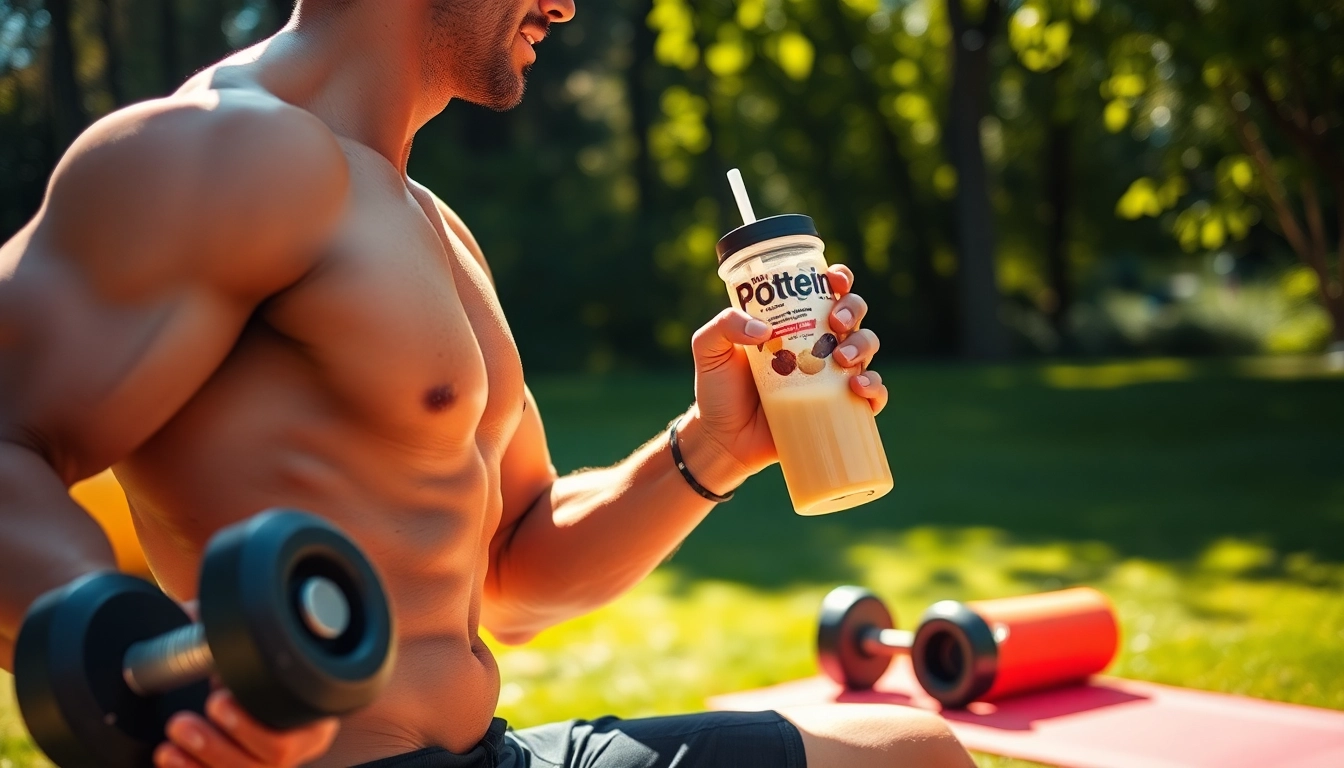Understanding Postworkout Nutrition
In the realm of fitness and health, the postworkout phase is crucial for optimal recovery and muscle building. Postworkout nutrition refers to the meal or snack consumed after engaging in physical activity, and it plays a significant role in replenishing energy stores, repairing muscles, and preparing the body for the next training session. In this article, we will delve into the intricacies of postworkout nutrition, exploring what constitutes a proper postworkout meal, the importance of timing, and the essential nutrients required for recovery.
1. What Constitutes Postworkout Meals?
A well-balanced postworkout meal typically includes a combination of macronutrients: proteins, carbohydrates, and fats. Each plays a vital role in recovery:
- Proteins: Essential for muscle repair and growth, proteins provide the building blocks needed to rebuild muscle tissue that has been broken down during exercise.
- Carbohydrates: These are crucial for replenishing glycogen stores depleted during workouts. Consuming carbohydrates post-exercise ensures that you have enough energy for future sessions.
- Fats: While fats are not immediately essential for recovery, they can play a role in overall nutritional balance and help in the absorption of fat-soluble vitamins.
Some examples of nutritious postworkout meals include grilled chicken with quinoa and steamed vegetables, a hearty vegetable and bean soup, or a smoothie made with spinach, banana, and protein powder.
2. Importance of Timing: When to Eat Postworkout
The timing of your postworkout meal significantly impacts recovery. Nutritionists recommend consuming a meal within 30 minutes to two hours after exercising. This window is often called the ‘anabolic window,’ during which your body is particularly receptive to nutrients.
In this time frame, your muscles are primed to absorb amino acids and replenish glycogen stores, aiding in recovery and muscle building. Waiting too long to eat may hinder recovery and affect your performance in subsequent workouts. It’s essential to plan your meals around your training schedule to make the most of this critical opportunity.
3. Essential Nutrients for Recovery
A successful postworkout meal should be rich in:
- High-quality protein: Aim for 20-30 grams to effectively stimulate muscle protein synthesis. Excellent protein sources include lean meats, dairy, eggs, and plant-based options like legumes and tofu.
- Carbohydrates: Depending on the intensity of your workout, consuming 30-60 grams can help restore energy levels. Great sources include whole grains, fruits, and starchy vegetables.
- Hydration: Replenishing fluids lost through sweat is crucial. Water is typically sufficient, but for longer and more intense sessions, consider beverages rich in electrolytes.
Best Foods to Fuel Recovery
1. High-Quality Proteins for Muscle Repair
Protein is fundamental for muscle recovery. Protein sources should be both high in quality and easily digestible. Here are some outstanding options:
- Chicken Breast: A lean source rich in high-quality protein, perfect for those aiming to build muscle.
- Greek Yogurt: Packed with protein, it also contains probiotics that help with digestion.
- Plant-Based Proteins: Options like lentils, chickpeas, and quinoa provide protein along with fiber and other nutrients.
- Eggs: A complete protein source, eggs also contain healthy fats and various vitamins.
Incorporating these proteins into your postworkout meals ensures that your muscles receive the necessary nutrients for recovery.
2. Carbohydrates: Replenishing Energy Stores
Post-exercise carbohydrate intake is essential to restore muscle glycogen. Optimal carbohydrate sources are:
- Bananas: Ideal for quick energy and are easy to digest.
- Sweet Potatoes: A nutrient-dense option packed with fiber and vitamins.
- Whole Grains: Foods like brown rice or oats offer sustained energy and are rich in fiber.
- Fruits: Berries, oranges, and apples are not only refreshing but also provide essential vitamins and hydration.
3. Hydration: Staying Fresh Postworkout
After a workout, it is vital to rehydrate adequately. Here are some tips:
- Water: Always the best option for regular hydration.
- Electrolyte Drinks: Useful after intense workouts to replenish lost minerals, particularly sodium and potassium.
- Coconut Water: A natural source of electrolytes with added flavor and sweetness.
Proper hydration not only aids digestion but also supports overall recovery and performance.
Common Postworkout Mistakes
1. Skipping Meals: Risks and Consequences
Many individuals underestimate the importance of postworkout nutrition, often choosing to skip their meals entirely. This mistake can lead to insufficient recovery, muscle loss, and hindered performance in subsequent workouts. Regularly missing postworkout meals can result in chronic fatigue and increased risk of injuries due to inadequate nutrient intake.
2. Overconsumption of Sugary Drinks
Some people tend to reach for high-sugar beverages postworkout, thinking they need to quickly replenish energy. However, excessive sugar can lead to spikes in insulin levels, promoting fat storage rather than recovery. Instead, focus on balanced meals containing complex carbohydrates and natural sugars through whole foods.
3. Ignoring Personal Dietary Needs
Everyone has unique nutritional requirements based on factors like body type, training intensity, and individual goals. Ignoring these differences can lead to ineffective recovery. It’s essential to tailor your postworkout nutrition to meet your personal needs—consider consulting a registered dietitian for personalized advice.
Optimal Postworkout Snacks
1. Quick and Nutritious Snack Ideas
If you’re on the go, having easy-to-prepare snacks can greatly enhance your recovery. Here are some ideas:
- Protein Shake: Quick to prepare and highly customizable.
- Nuts and Seeds: Easy to grab and packed with healthy fats and protein.
- Rice Cakes with Nut Butter: A tasty combination of carbohydrates and protein.
- Hard-Boiled Eggs: Simple to make in advance and a great protein source.
2. Portable Snacks for Busy Lifestyles
For those with demanding schedules, portable snacks can ensure you’re covered post-exercise:
- Protein Bars: Look for options with minimal added sugars and high-quality ingredients.
- Trail Mix: A mix of nuts, seeds, and dried fruits offers great energy on the go.
- Greek Yogurt Cups: Convenient and nutritious.
- Veggies and Hummus: Offers fiber and protein in a portable fashion.
3. Meal Prep: Planning for Postworkout Success
Taking the time to meal prep can help streamline postworkout nutrition. Consider planning meals that meet your recovery needs:
- Batch-cook proteins like chicken or turkey.
- Prepare whole grain sides like quinoa or brown rice.
- Pre-portioned fruits or yogurt can make quick snacks accessible.
Having meals ready to go will reduce the temptation to skip meals or grab unhealthy options.
Tracking Your Recovery Progress
1. Monitoring Energy Levels After Eating
Postworkout nutrition is not just about what you eat; it’s also about how it affects you. Keeping a journal of how you feel after eating can be invaluable. Pay attention to:
- Your energy levels for the remainder of the day.
- Muscle soreness in response to your meal choices.
- Your overall mood and motivation.
2. Adjusting Your Nutrition Postworkout
Based on your tracking, you may need to adjust your postworkout meals and snacks:
- If you find you’re still fatigued, consider increasing your carbohydrate intake.
- Should muscle soreness persist, ensure your protein intake is adequate.
- Experiment with different meal timing and compositions to find what works best for your body.
3. Performance Metrics to Consider
Metrics such as recovery time, strength gains, and overall energy levels can provide insight into the effectiveness of your postworkout nutrition. Keeping a log helps identify patterns and areas for improvement. Ensure you periodically assess your goals and adjust your nutrition strategy as necessary.



